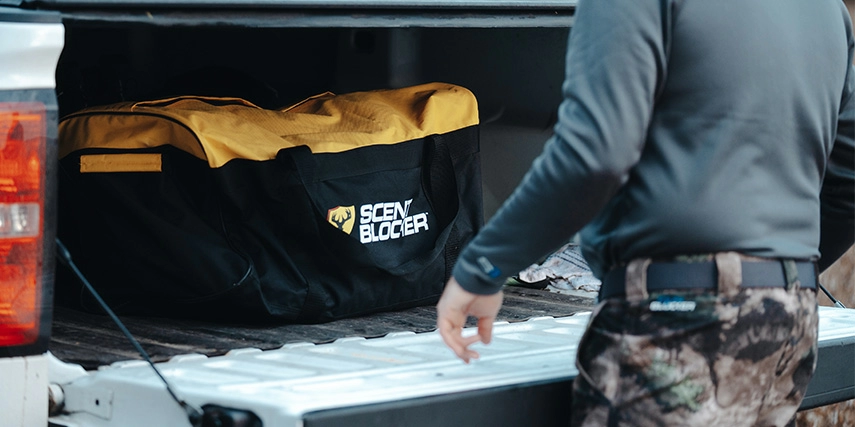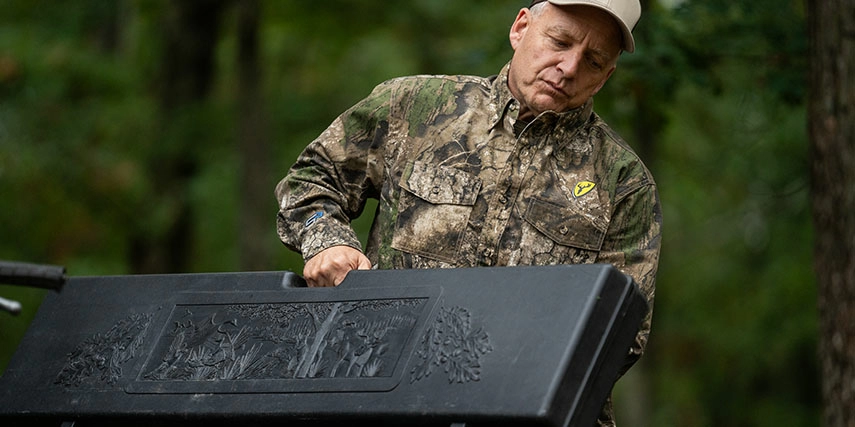Hunting in a different state can be an exhilarating and rewarding experience, offering new landscapes, diverse wildlife, and fresh challenges. However, embarking on an out-of-state hunting trip requires thorough preparation and understanding of the local regulations.
Before planning any new hunts that require traveling out of my home state of Missouri, I am often reminded of a local man who traveled to Kansas on one of his first hunts. His scheduled hunt times were six days and five nights at a semi-guided outfitter. When he arrived at his camp, instead of getting right into the hunt, he was blindsided by news that his home state’s hunter’s safety course was not accepted to buy a license in Kansas. Unfortunately, the man had to spend the first three days of his six-day hunt testing and getting certified to buy a license legally.
Hunting in a state different from where you reside can often be enjoyed and embraced by hunting enthusiasts. Although there are benefits, they are considerations and essential information that hunters planning to pursue their passion beyond state borders must first observe.

Benefits of Hunting in Different States
Why would someone travel several hours to a different state to hunt? One of the most common reasons for traveling to hunt is diverse wildlife. Each state boasts unique ecosystems and wildlife, allowing hunters to pursue different species and expand their hunting experiences instead of hunting the same animal their entire lives. A hunter feels a certain satisfaction by challenging themselves to hunt out of their comfort zone.
Hunting in a different state also allows for exposure to diverse terrains, from mountains and forests to plains and deserts, and can present one with a wide range of environments. Not only can these unique landscapes be an ideal habitat to grow trophy big game animals, but hunting on some of God’s unique landscapes can often be pleasing to a hunter’s soul.
For those hunters who also have a bit of adventure-seeking hidden deep inside, traveling to a different state to hunt can often host many opportunities for adventure and exploration. Out-of-state hunting trips offer the chance to explore new territories, learn about different cultures, and enjoy the adventure of discovering unfamiliar landscapes by challenging your body and the endurance required to succeed in unfamiliar areas.
Key Considerations Before Hunting in a Different State
Whatever your reason for wanting to pack up your Scent Blocker Travel Bag or the Blocker Cotton Duck Duffle Bag and travel to hunt, many considerations must be taken to avoid mishaps, such as what happened to the man I mentioned earlier. Here are a few key factors to consider.
Licenses and Permits – Research and obtain the necessary hunting licenses and permits for the specific state and species you plan to pursue. Be aware of application deadlines; some states have limited permits and a competitive application process.
Laws and Regulations – Familiarize yourself with the hunting laws and regulations of the state you’ll be visiting. Regulations vary significantly, including season dates, bag limits, and weapon restrictions. Stay informed about any recent changes in regulations to ensure compliance.
Safety Courses – Some states may require hunters to complete a hunter safety course before obtaining a license. Check the local requirements and complete any mandatory courses in advance.
Scouting Land in a Different State
After ensuring you’re legal and prepared before traveling on your next hunting adventure, the next step is ensuring you will be hunting in the best potential areas. Some hunters use an outfitter or a guide service to scout and set up stands or blinds before the hunter arrives. After all, most of those who travel will be narrowed down to a certain number of days to hunt before returning home. Ensuring each day is spent hunting instead of scouting is essential with limited days.
If not using an outfitter or guide, here are a few ways hunters can scout and prepare without losing their precious hunting days.
Online Research – Utilize online maps, satellite imagery, hunting forums, and hunting apps to research potential hunting areas. Identify public lands, hunting units, and topography to plan the trip effectively.
Local Contacts – Reach out to local wildlife agencies, hunting guides, or fellow hunters for insights on the best hunting spots, recent game movements, and any specific challenges or considerations.
On-Site Scouting – If possible, plan a scouting trip before the hunting season to familiarize yourself with the terrain, locate game trails, and assess the overall hunting conditions.

Hunting in a different state offers avid hunters a unique and enriching experience. By thoroughly researching and preparing for the trip, understanding local regulations, and exploring the diverse landscapes, hunters can make the most of their out-of-state adventures while contributing to the conservation and responsible enjoyment of the great outdoors.


